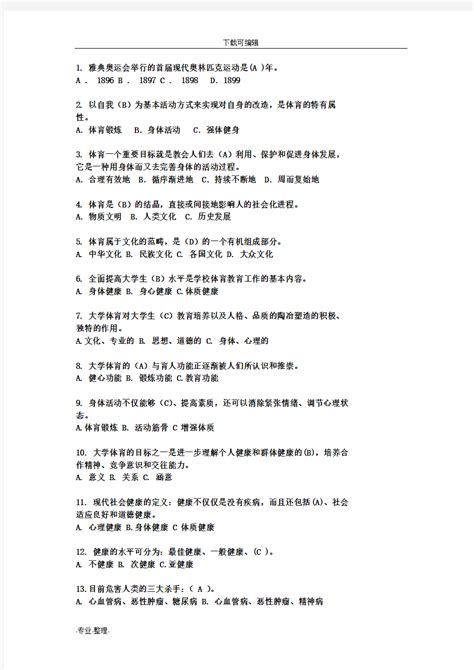Title: Navigating the Landscape of Sports Theory Examination Websites
In the realm of sports theory examination websites, understanding the dynamics, content, and strategies is paramount for success. Whether you're a student preparing for an exam or an educator seeking to enhance learning experiences, exploring the intricacies of these platforms is essential. Let's delve into this domain and unravel key insights and guidance.
Understanding the Landscape:
Sports theory examination websites serve as digital repositories of knowledge, catering to individuals interested in comprehending various facets of sports theory. These platforms offer a diverse array of resources, including study materials, practice tests, quizzes, and interactive learning modules. Their content spans across disciplines such as physiology, psychology, biomechanics, nutrition, coaching methodologies, and sports management.
Key Components of Effective Platforms:
1.
Comprehensive Content:
Highquality websites cover a wide spectrum of topics relevant to sports theory examinations. They provide indepth explanations, diagrams, case studies, and realworld examples to facilitate understanding.
2.
Interactive Learning Tools:
Incorporating interactive elements like quizzes, flashcards, and simulations enhances engagement and retention. These tools enable users to assess their knowledge, identify areas of improvement, and reinforce learning through active participation.
3.
Adaptive Learning Features:
Advanced platforms employ adaptive learning algorithms that personalize the learning experience based on individual proficiency levels and learning pace. This tailored approach optimizes knowledge retention and ensures efficient progress.
4.
UserFriendly Interface:
Intuitive navigation, organized content structure, and responsive design are essential for a positive user experience. Clear categorization, search functionality, and mobile compatibility contribute to accessibility and usability.
5.
Timely Updates and Revisions:
Given the evolving nature of sports science and theory, regularly updating content to reflect the latest research findings, industry trends, and examination requirements is crucial. Revisions should be informed by feedback from users and subject matter experts.
Guidance for Users:
1.
Assessment of Learning Objectives:
Before utilizing a sports theory examination website, clarify your learning objectives and examination requirements. Identify the specific topics, concepts, and skills you need to master, and assess how well the platform aligns with your goals.
2.
Engagement with Interactive Resources:
Take full advantage of interactive learning tools offered by the website. Regularly engage in practice tests, quizzes, and interactive modules to reinforce understanding, identify weak areas, and track your progress over time.
3.
Active Learning Strategies:
Adopt active learning strategies such as summarization, selfexplanation, and elaborative interrogation while studying the content. Actively apply theoretical knowledge to practical scenarios, analyze case studies, and participate in discussions to deepen comprehension.
4.
Utilization of Supplementary Resources:
Supplement the website's content with additional resources such as textbooks, scholarly articles, educational videos, and podcasts. Diversifying your learning sources enriches your understanding and provides alternative perspectives on complex topics.
5.
Feedback and Iterative Learning:
Provide feedback to website administrators regarding content quality, usability, and areas for improvement. Actively participate in community forums or discussion boards to share insights, seek clarification, and collaborate with fellow learners.
Conclusion:
In the realm of sports theory examination websites, maximizing learning outcomes requires a strategic approach encompassing content exploration, interactive engagement, and active learning practices. By leveraging the features of effective platforms and adopting guided learning strategies, users can enhance their understanding of sports theory and excel in examinations. Continuous feedback, iteration, and collaboration foster a dynamic learning environment conducive to knowledge acquisition and skill development. Embrace the journey of exploration, discovery, and mastery on your quest for sports theory proficiency.

Stay Curious, Stay Active, and Dive Deep into the World of Sports Theory!
